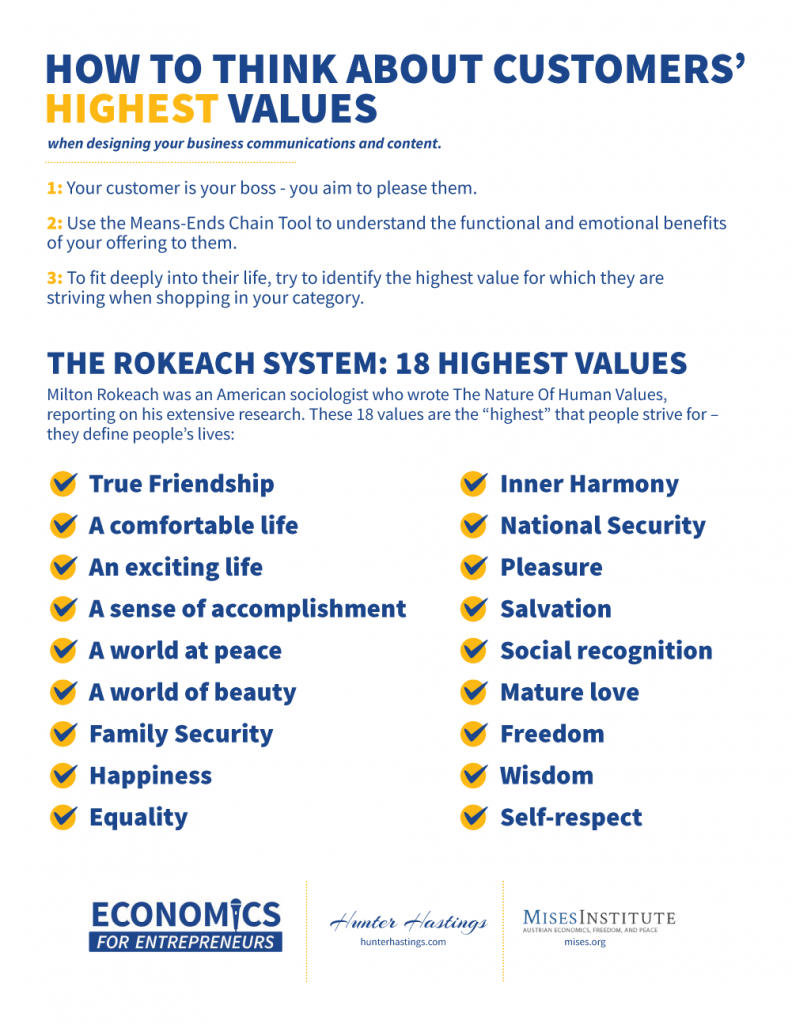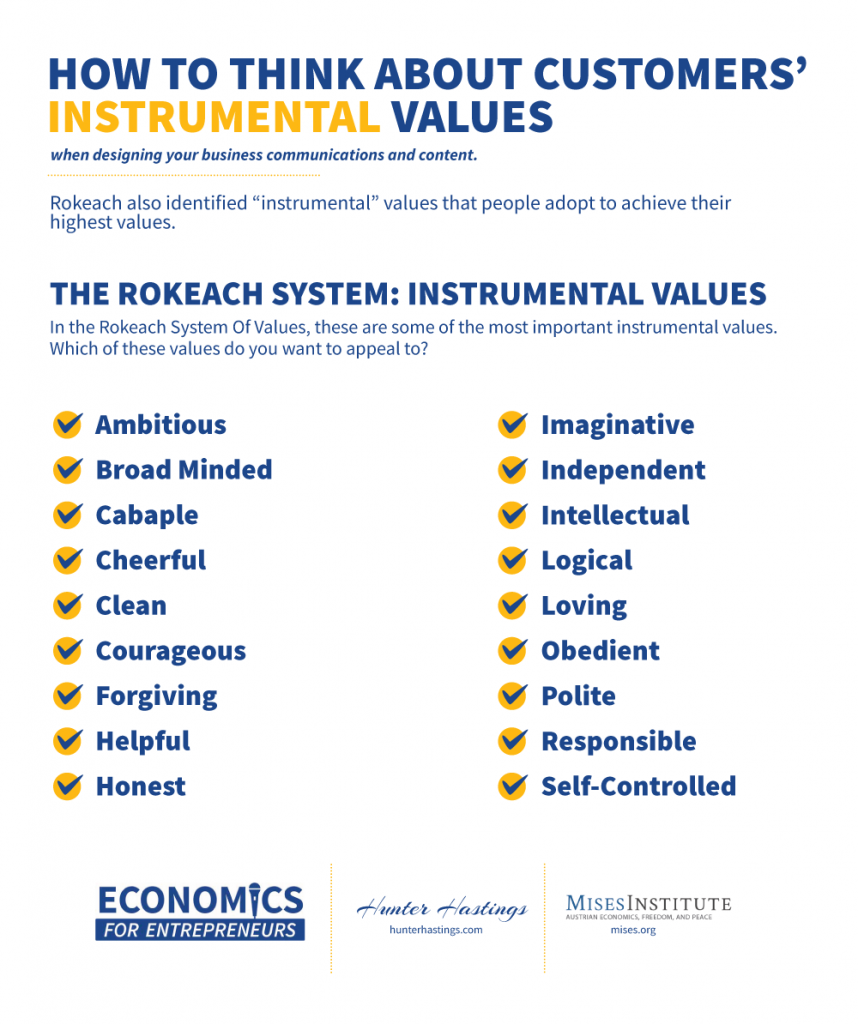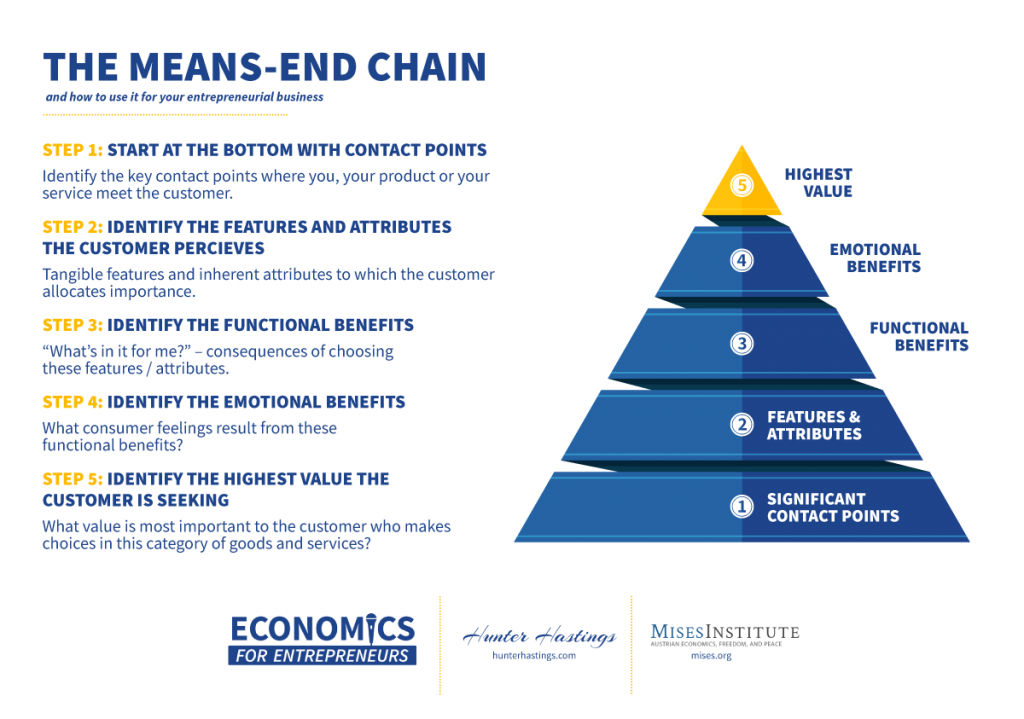2. Trini Amador on the Role of Values in Business
Values As A Basis For Business Building And Brand Building.
In Economics For Entrepreneurs, we will attempt to bring you some usable tools that represent a way to apply economic principles to your business to help you to greater success. Economists talk about individuals embracing values as a guidepost to the right behavior and the right choices. An example of such a value might be Family Security. An individual who holds this value in high esteem will make certain choices about their career, for example, perhaps emphasizing stability over frequent change. Another individual who prefers an exciting life might make the choice of more change, excited by the possibilities it brings. How can entrepreneurs diagnose and understand these idiosyncratic choices and take cognizance and advantage of them in business? This week we talked with Trini Amador, who is an entrepreneur who advises some of the biggest corporations in the world on these mysteries, and has built a highly successful values-based brand of his own. Here are some highlights.
Show Notes
People adopt values as a guide to their behavior and a signpost for prioritizing their preferences and choices. For example, a sense of achievement might be a value for one individual to pursue, and in as many circumstances as they feel are applicable, they’ll ask themselves, “Will this choice or action bring me a sense of accomplishment?
There are many possible values; individuals tend to be most motivated by their “highest values”. Entrepreneurs who can identify these highest values in their customers, and can develop an understanding of how to appeal to them, can be especially successful in designing value propositions and service offerings.
The way for entrepreneurs to understand how to appeal to consumers’ highest values is to think about climbing up the values ladder to reach the top. Their first encounter with your business will be at the bottom rung – the service or product you are offering. Their first question will be, what’s the benefit for me? If they see a functional benefit, they’ll ask themselves if it makes them feel good – proud, comfortable, energized, whatever feeling is relevant. If they experience an emotional benefit, they’ll ask if your offering fits with their highest value – that’s what makes them a devoted and loyal customer.
The tool to help your business climb the values ladder is the Mean-End Chain. We posted a simple example with Episode #1.
When you’ve constructed a Means-Ends chain for your target customer, you can begin to populate a brand framework. People are loyal to brands, and they often pay a premium price. A brand can be a person (you) or a business (yours) or a product or a service. Trini explains how to populate the brand framework to make your brand relevant to the target audience and differentiated by making a unique promise that you keep every time.
These are the brand building tools utilized by the world’s most successful brands. Trini delivers the insider’s knowledge.


